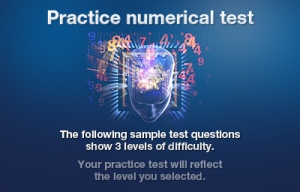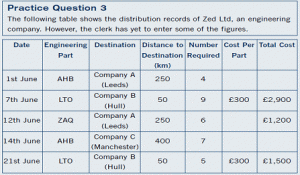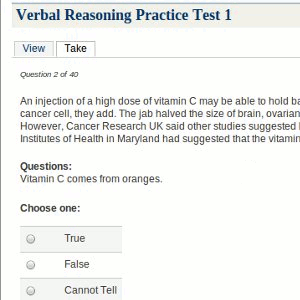Before you are invited for an interview, you might have to complete a series of online numerical and verbal reasoning tests. These tests can seem daunting, but read on to find out Futureboard’s tips to prepare you for success. 
According to researchers, well-researched, highly reliable and valid psychometric ability tests are the most effective predictor of job performance available. They outperformed interviews, references, bio-data and every other commonly used candidate selection method.
However, the predictive power of psychometric testing, combined with other selection procedures such as competency-based interviews, assessment centre exercises and the like is significantly higher than either measure on its own. You can read more about aptitude tests here.
The Futureboard staff says: “You don’t need a degree in Mathematics to do well in many numerical reasoning tests. Basic concepts such as addition, subtraction, fractions, ratios and percentages are expected of you but you won’t have to learn any formulas or trigonometry.”
In fact, what they test is not your knowledge of maths, but your ability to interpret data and give a logical answer to the questions. However, remember that for certain engineering or research roles, for example, you will require a higher level of proficiency.
Numerical tests generally consist in multiple choice answers that require no previous knowledge. The questions present you numerical information you are likely to deal with while working at that job and they are based on the information given – so don’t make assumptions about data that is not there!
During numerical and verbal reasoning tests you are allowed to use calculators, but you usually have a strict time limit. You can follow a structure like this to answer a question in a test with a 60-second time limit:
- 10 seconds – look at the data on the screen
- 10 seconds – do any conversions that are necessary to complete the answer (eg weight, currency etc)
- 30 seconds – calculate the answer
- 10 seconds – check your answer – is it in the correct units etc
- If possible, use your own calculator. You will know where all the buttons are off by heart so can gain valuable seconds
Don’t think you can’t prepare for an aptitude test: you can improve your score if you go over as many practice questions as possible before you sit your test for real. Learning which axis to look at on the graphs, how to interpret tables and to check for currency or weight conversions can save you time and give you extra marks.
Different companies have different types of tests. The most popular and toughest test is provided by SHL. If you can, ask your potential employer whose tests you will be sitting and then practice the tests from that company.
The Futureboard staff says: “It may also be wise to ask if the tests are negatively marked. This means your score will be negatively affected if you simply guess the answers.”
Remember to stay calm: a lot of tests are designed so that you don’t finish all of the questions. Quality not quantity is always better if you are unsure.
Verbal tests generally use a passage of writing followed by a statement about it: you will have to decide if that statement is true or false. Remember not to use any further, detailed knowledge you may have on a subject in the text: just use the information you’re given.
You don’t’ need to be a fast reader – just make sure you fully understand what is written. Accuracy is essential: don’t jump to conclusions, as these tests focus more on how well you understand information rather than on what you know.
You can purchase some practice tests from Wiki Jobs. Here are some other links to examples and guides:
The British Psychological Society
Good luck from Futureboard!
Pictures by:Psycometric Insitute, raf.mod.uk and wikijob.co.uk